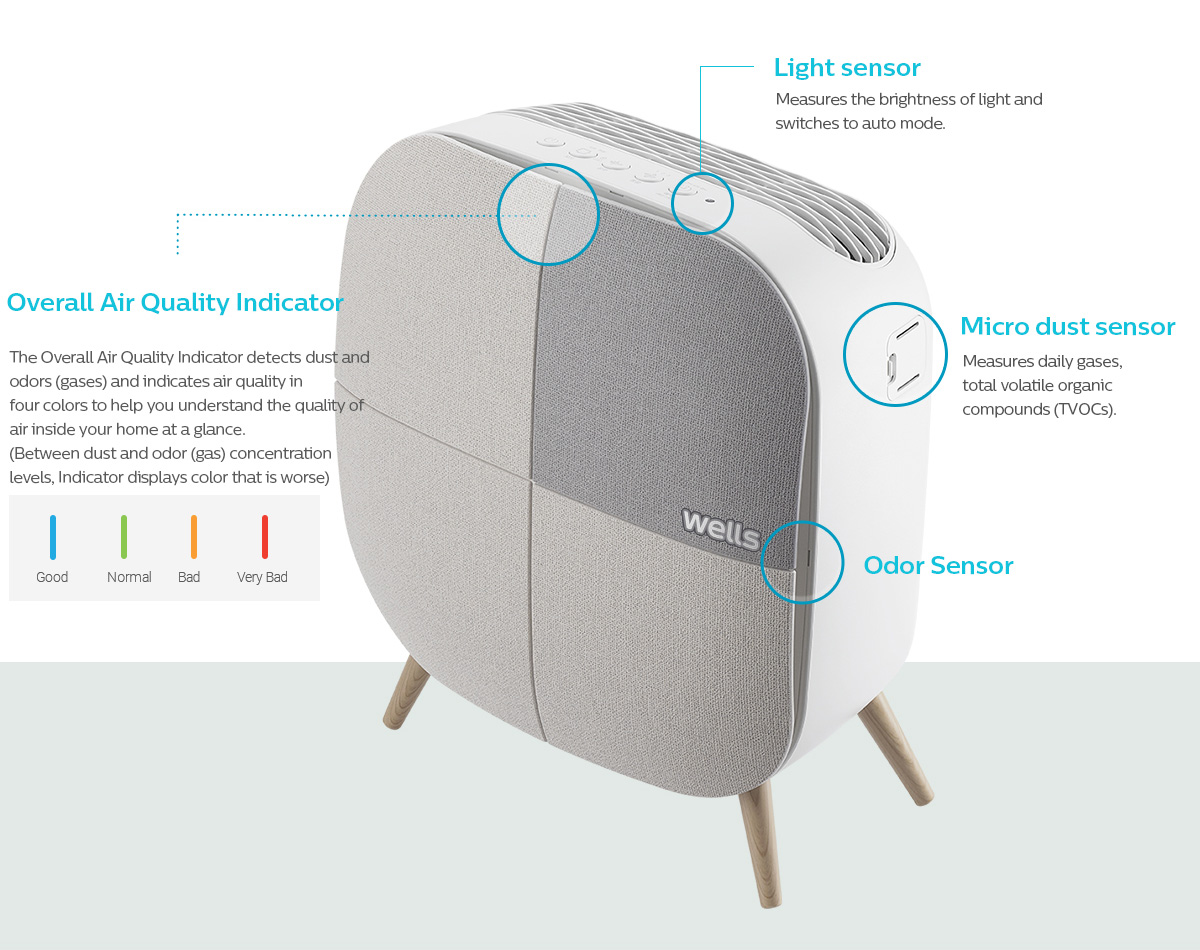Clean air is something most of us take for granted—until it starts to affect our health. With urbanization, increased vehicle emissions, and indoor pollutants such as dust, smoke, and pet dander, maintaining good air quality has become a challenge for many households. This is where an air purifier comes in — a powerful device designed to filter and cleanse the air we breathe every day.
Using an air purifier isn’t just about keeping your home fresh; it plays a vital role in protecting your health. From reducing allergies and asthma symptoms to improving sleep and overall well-being, purified air can make a significant difference in your quality of life.
In this article, we’ll explore the key health benefits of using an air purifier and why clean air truly matters.
Understanding How an Air Purifier Works
An air purifier works by drawing in surrounding air, filtering out harmful particles, and releasing clean, fresh air back into the room. Most modern purifiers use multiple layers of filters — such as HEPA (High-Efficiency Particulate Air) filters, activated carbon filters, and ionizers — to trap various pollutants.
- HEPA filters capture up to 99.97% of particles as small as 0.3 microns, including dust, pollen, and mold spores.
- Activated carbon filters absorb odors, smoke, and volatile organic compounds (VOCs) from household cleaning products or paints.
- Ionizers release negative ions that bind to airborne particles, causing them to settle out of the air.
Together, these technologies create a cleaner, healthier indoor environment, which is especially important for people living in urban areas or homes with poor ventilation.
1. Reduces Allergy Symptoms
One of the biggest benefits of using an air purifier is allergy relief. Common allergens like pollen, dust mites, and pet dander can easily circulate indoors and trigger symptoms such as sneezing, runny nose, and itchy eyes.
A HEPA-equipped air purifier can trap these particles before they reach your respiratory system. By continuously cleaning the air, it helps maintain a low-allergen environment, allowing allergy sufferers to breathe easier and sleep better.
For homes with pets, air purifiers are especially useful in reducing fur and microscopic skin flakes that can cause allergic reactions.
2. Helps Control Asthma and Respiratory Problems
Asthma patients are particularly sensitive to airborne irritants like smoke, dust, and mold spores. These pollutants can inflame airways and trigger asthma attacks.
An air purifier minimizes these risks by removing asthma-inducing particles and maintaining better air circulation. Some advanced purifiers even feature smart sensors that automatically adjust the fan speed when pollution levels increase, ensuring continuous air cleanliness.
In addition, air purifiers help remove volatile organic compounds (VOCs) — chemicals emitted from paints, adhesives, and household cleaners — which are known to worsen respiratory conditions.
By providing consistent clean air, air purifiers reduce the burden on your lungs, helping you breathe more comfortably.
3. Removes Harmful Airborne Particles
Indoor air can be surprisingly polluted — sometimes even more than outdoor air. Everyday activities like cooking, smoking, or using aerosol sprays release microscopic particles that can linger indoors for hours.
An air purifier acts as a protective barrier against these invisible threats. It efficiently removes particulate matter such as PM2.5 (fine particles smaller than 2.5 micrometers) — known to penetrate deep into the lungs and even enter the bloodstream.
Long-term exposure to PM2.5 is linked to serious health problems, including heart disease, lung cancer, and stroke. By filtering out these dangerous particles, air purifiers help lower your exposure to harmful pollutants and safeguard your long-term health.
4. Eliminates Odors and Cigarette Smoke
Whether it’s from cooking, pets, or tobacco, unpleasant odors can linger and affect indoor comfort. Air purifiers equipped with activated carbon filters excel at absorbing these smells by trapping odor molecules and neutralizing them.
For smokers or families exposed to secondhand smoke, this feature is especially beneficial. Cigarette smoke contains thousands of harmful chemicals and carcinogens that can irritate the lungs and increase health risks.
An air purifier reduces these risks by removing smoke particles and minimizing odor, creating a fresher, cleaner living space for everyone.
5. Improves Sleep Quality
Good air quality contributes directly to better sleep. Pollutants like dust and pet hair can irritate the nose and throat, causing snoring, coughing, or discomfort during the night.
By purifying the air, an air purifier creates a cleaner sleeping environment, reducing nighttime allergy triggers and improving breathing patterns. Some models operate quietly in “sleep mode,” maintaining clean air without disturbing rest.
Consistent exposure to purified air can lead to more restful, uninterrupted sleep — which, in turn, improves mood, concentration, and immune function.
6. Supports Cardiovascular and Cognitive Health
Breathing clean air benefits more than just the lungs. Research shows that exposure to fine air pollutants can also increase the risk of heart disease, high blood pressure, and even cognitive decline.
An air purifier helps by reducing particulate matter and airborne toxins that can enter the bloodstream through inhalation. Cleaner air leads to lower oxidative stress and inflammation, both of which play a role in maintaining heart and brain health.
This is particularly important for older adults and children, who are more vulnerable to the harmful effects of air pollution.
7. Protects Against Mold and Bacteria
In Malaysia’s humid climate, mold growth is a common household problem. Mold spores can trigger allergic reactions, respiratory infections, and worsen asthma symptoms.
Air purifiers with HEPA and UV-C filters are effective in trapping and destroying these microorganisms, preventing them from spreading. Regular use can reduce musty odors, minimize mold buildup, and create a healthier indoor environment.
Additionally, some purifiers feature antibacterial coatings or plasma technology that neutralize airborne germs, reducing the spread of viruses and bacteria within the home.
8. Enhances Overall Well-Being and Productivity
Breathing clean air has subtle but powerful effects on your mental and physical well-being. Studies have shown that cleaner air can improve focus, reduce fatigue, and enhance mood.
Poor air quality, on the other hand, can cause headaches, eye irritation, and general sluggishness. An air purifier helps maintain a refreshing indoor atmosphere that promotes alertness and overall vitality.
This makes it an excellent addition to not just homes, but also offices and classrooms — where concentration and comfort are essential.
9. Beneficial for Children and the Elderly
Children and older adults are more sensitive to airborne pollutants. Their immune systems are either still developing or weakened, making them more vulnerable to respiratory illnesses and allergies.
Using an air purifier helps create a safer breathing environment for these groups, reducing their exposure to harmful particles and allergens. Cleaner air supports better lung development in children and improved respiratory health in seniors.
Conclusion
In today’s world, where indoor air quality is often overlooked, investing in an air purifier is one of the simplest and most effective ways to protect your health. From easing allergy symptoms and improving sleep to reducing long-term risks associated with air pollution, the benefits of cleaner air are undeniable.
Whether you live in a busy city or a quiet suburb, an air purifier ensures that the air you breathe is as pure and healthy as possible. It’s not just a household appliance — it’s a long-term investment in your well-being and quality of life.
By making clean air a daily priority, you take an essential step toward better health, stronger immunity, and a more comfortable living environment for you and your loved ones.



